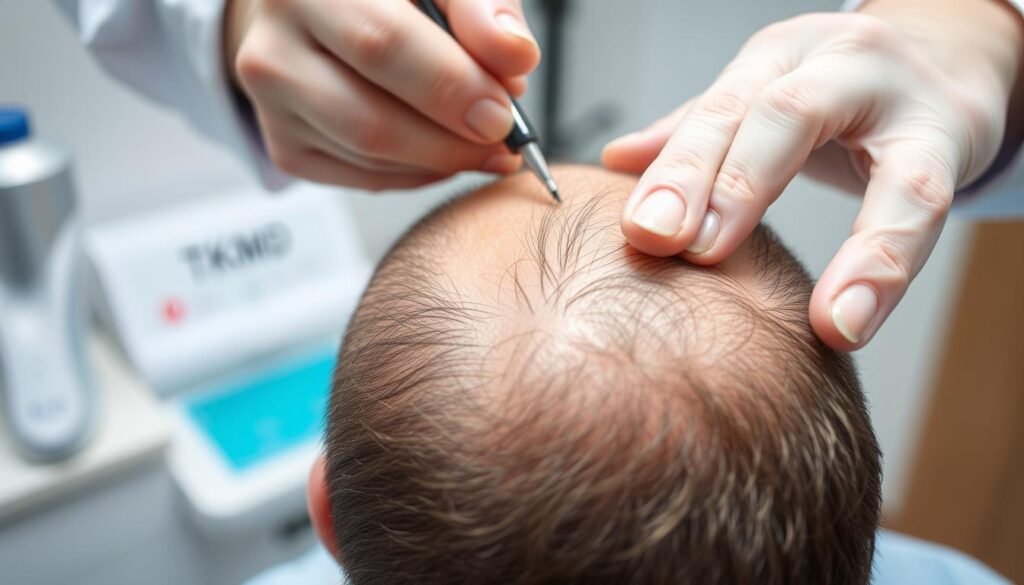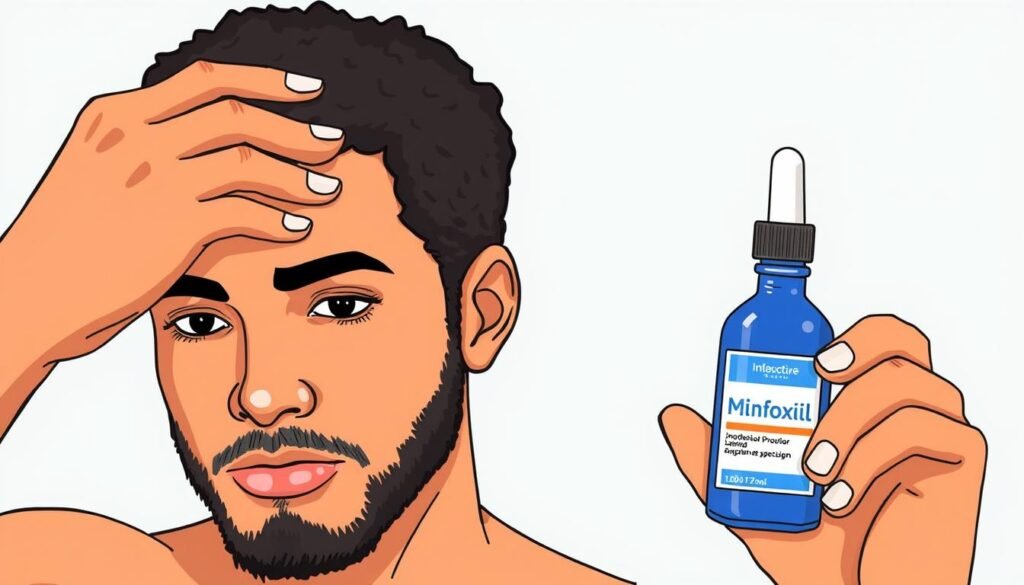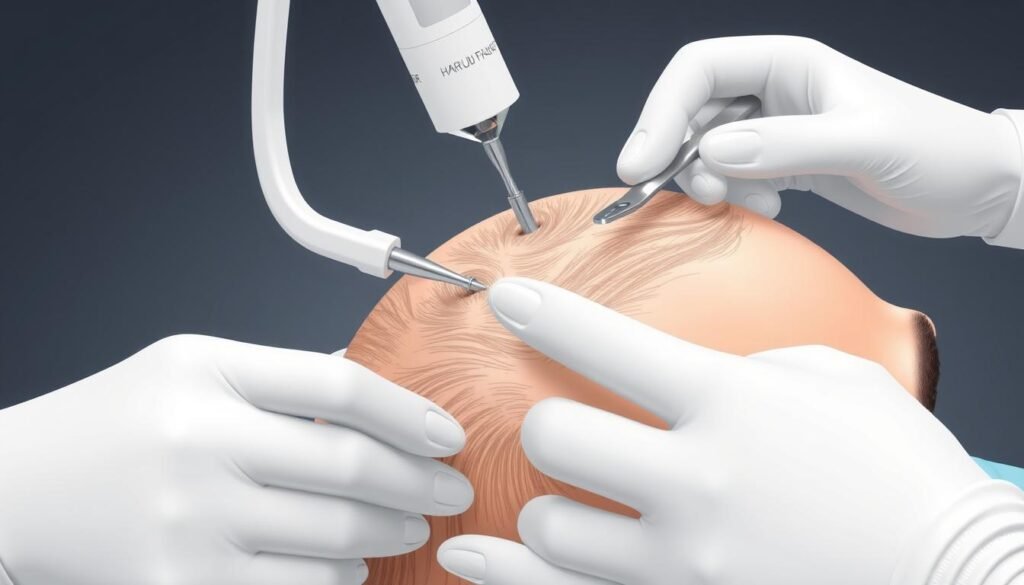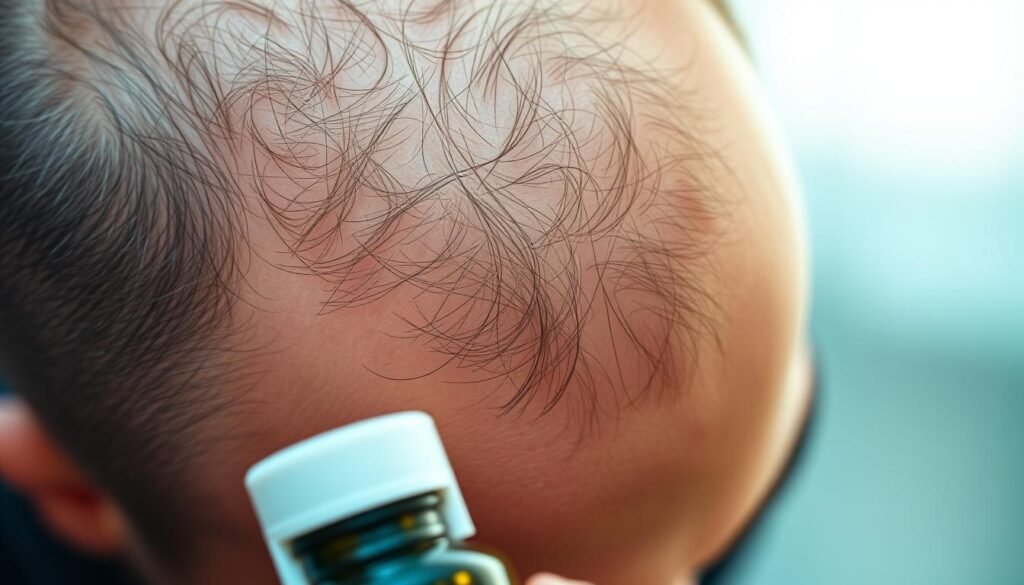Hair loss is a universal concern that affects millions of Americans, transcending age, gender, and background. It’s not just about aesthetics; hair loss can significantly impact one’s self-esteem and overall well-being. The causes are varied, ranging from genetics and medical conditions to hormonal changes and lifestyle factors.
Consulting a board-certified dermatologist is often the first step toward finding an effective solution. These specialists have the expertise to diagnose the underlying cause of hair loss and recommend the most appropriate treatment approach.
Early intervention is key to preventing further hair loss and potentially stimulating regrowth. With various treatment options available, understanding the root cause of hair loss is crucial for determining the best course of action.
Key Takeaways
- Consulting a dermatologist is crucial for an accurate diagnosis of hair loss.
- Hair loss can result from a variety of factors including genetics and medical conditions.
- Early intervention can prevent further hair loss and stimulate regrowth.
- Different types of hair loss require different treatment approaches.
- A board-certified dermatologist can provide the most effective treatment plan.
Understanding Hair Loss and When to See a Doctor
Hair loss is not just a cosmetic issue; it can be a symptom of an underlying medical condition that requires professional evaluation. Understanding the causes and signs of concerning hair loss is crucial for determining when to seek medical attention.
Normal Hair Loss vs. Concerning Hair Loss
It’s normal to lose some hair daily, as part of the hair growth cycle. However, excessive hair loss, such as significant thinning or bald patches, can be a sign of an underlying issue. Dermatologists are experts in distinguishing between normal hair loss and conditions that require medical attention.
Signs You Should Consult a Dr for Hair Loss
If you’re experiencing sudden or severe hair loss, itching, redness, or scaling on the scalp, it’s advisable to consult a dermatologist. These symptoms could indicate an underlying condition that needs treatment.
Which Type of Doctor to See
For hair loss concerns, a dermatologist is often the best specialist to consult, given their expertise in skin and hair disorders. However, depending on the cause, other specialists like endocrinologists or trichologists might also be involved in your care.
| Specialist | Expertise |
|---|---|
| Dermatologist | Diagnosing and treating hair loss conditions related to skin and hair disorders |
| Endocrinologist | Addressing hormonal imbalances or thyroid disorders that may cause hair loss |
| Trichologist | Specializing in hair and scalp health, though not medical doctors and cannot prescribe medications |
Common Causes of Hair Loss
Hair loss is a multifaceted condition with various contributing factors. Understanding these causes is crucial for identifying the most effective treatment options.
Hereditary Hair Loss
Hereditary hair loss, also known as male and female pattern baldness, is the most common cause of hair loss. It is characterized by a gradual thinning of hair, particularly on the scalp, due to genetic predisposition. Treatment options are available to slow down or halt the progression of hereditary hair loss.
Medical Conditions That Cause Hair Loss
Various medical conditions can lead to hair loss. For instance, autoimmune diseases like alopecia areata cause patchy hair loss, while thyroid disorders can lead to diffuse hair thinning. Certain skin conditions, such as psoriasis and eczema, can also affect hair growth.
Lifestyle and Environmental Factors
Lifestyle and environmental factors play a significant role in hair loss. Excessive stress, poor nutrition, and exposure to certain chemicals can contribute to hair loss. Ensuring a balanced diet and minimizing stress through relaxation techniques can help mitigate these effects.
Medications and Treatments
Certain medications and treatments can cause hair loss as a side effect. For example, chemotherapy drugs used in cancer treatment often result in significant hair loss. Other medications, including those for high blood pressure, depression, and arthritis, can also lead to hair loss. 
- Chemotherapy drugs attack rapidly dividing cells, including hair follicles, leading to hair loss.
- Certain antidepressants, blood thinners, and beta-blockers can disrupt the normal hair growth cycle.
- Anabolic steroids used for athletic performance enhancement can cause hormonal imbalances leading to hair loss.
In many cases, hair loss due to medication is reversible once the treatment is discontinued.
How Doctors Diagnose Hair Loss
Doctors use a combination of physical examination, medical history, and diagnostic tests to diagnose hair loss. This comprehensive approach helps identify the underlying causes and determine the most effective treatment plan.
Initial Consultation and Physical Examination
The diagnosis process begins with an initial consultation, where the doctor reviews the patient’s medical history and performs a physical examination of the scalp. This helps identify any underlying medical conditions that may be contributing to hair loss.
Diagnostic Tests for Hair Loss
In some cases, additional diagnostic tests may be required to determine the cause of hair loss. These tests can help identify conditions such as autoimmune disorders or nutritional deficiencies. For more information on diagnostic tests and treatment options, you can visit https://www.aad.org/public/diseases/hair-loss/treatment/diagnosis-treat.
Understanding Your Diagnosis
Once the diagnosis is made, the doctor will explain the type of hair loss and the recommended treatment approach. Understanding the diagnosis is crucial, as it determines the expected outcomes and the likelihood of successful treatment. Factors such as the causes of loss and the duration of the condition will be discussed, including whether it is likely to be temporary or permanent and how it may progress over time.

Treatment Options from a Dr for Hair Loss
When it comes to addressing hair loss, a Dr for Hair Loss can offer a variety of treatment options tailored to the individual’s specific condition. The right treatment plan can significantly impact the effectiveness of hair restoration.
Prescription Medications
Prescription medications are often the first line of treatment for hair loss. Drugs like finasteride can help slow down hair loss and even stimulate new hair growth. These medications work by addressing the hormonal causes of hair loss, particularly in cases of male and female pattern baldness.
Over-the-Counter Treatments
For those who prefer a more conservative approach or are in the early stages of hair loss, over-the-counter treatments like minoxidil can be effective. Minoxidil is applied directly to the scalp to stimulate hair growth and slow down hair loss.

Advanced Procedures and Therapies
In more severe cases of hair loss, advanced procedures such as hair transplant may be recommended. This involves transplanting healthy hair follicles from one part of the scalp to another, providing a more permanent solution to hair loss.

Lifestyle Changes and Supplements
In addition to medical treatments, certain lifestyle changes and supplements can support hair health. A nutrient-rich diet, stress management, and gentle hair care practices can all contribute to healthier hair. It’s also important to address any nutritional deficiencies, such as a lack of biotin, iron, or zinc, which can impact hair growth.
- A nutrient-rich diet emphasizing proteins, healthy fats, and foods high in vitamins A, C, D, E, zinc, and iron provides essential building blocks for healthy hair growth.
- Stress management techniques such as meditation, yoga, and adequate sleep can help reduce stress-related hair shedding.
- Gentle hair care practices, including avoiding tight hairstyles and excessive heat styling, can prevent mechanical damage to hair.
- Scalp massage performed regularly can increase blood circulation to hair follicles and stimulate growth.
- Targeted supplements should be taken only when deficiencies are confirmed through blood tests.
Conclusion: Working with Your Doctor for Optimal Results
To maximize the chances of successful hair regrowth, it’s essential to partner with a dermatologist who can help you develop a personalized treatment plan.
Many people experience significant hair regrowth with the right treatment approach. However, it’s crucial to understand that hair loss treatment is not a one-size-fits-all solution, and it may take some time to find the right combination of therapies.
Consistency and patience are key elements of any hair loss treatment plan. By working closely with your doctor and making necessary lifestyle modifications, such as changes to hairstyles and diet, you can improve your chances of successful treatment.
While complete hair restoration is not always possible, a well-crafted treatment plan can help prevent further loss and promote regrowth. By following your doctor’s recommendations and maintaining realistic expectations, you can achieve the best possible outcome.


